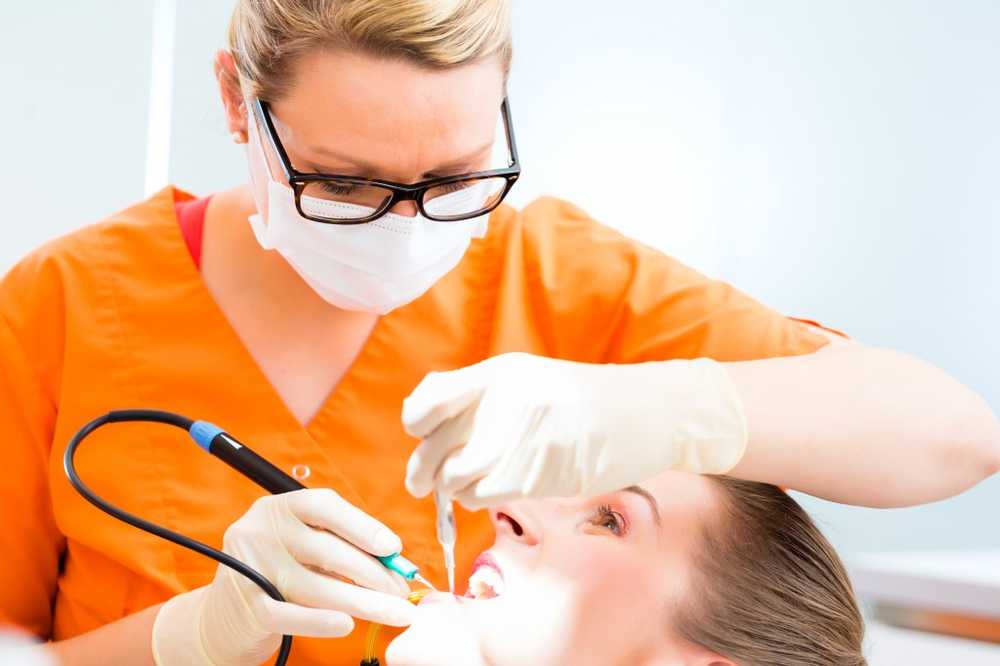Grants for professional teeth cleaning from about every second till

More and more people regularly use the offer of a professional tooth cleaning (PZR) at the dentist. It is an achievement that patients have to pay for themselves. However, a survey showed that almost every second health insurance company in Germany subsidizes PZR on a voluntary basis.
Almost half of the German health insurance companies give grants
At a doctor's visit, patients are repeatedly offered so-called Individual Health Services (IGeL), the costs of which they themselves have to bear. However, the Medical Service of the National Association of Statutory Health Insurance Funds (MDS) recently announced that a scientific review found dubious benefits for most IGeL.
 Every second cashier pays the professional teeth cleaning. Picture: Kzenon - fotolia
Every second cashier pays the professional teeth cleaning. Picture: Kzenon - fotolia One of the benefits that actually has to be paid by the insured person is Professional Dental Cleaning (PZR). Many patients opt for clean teeth and preventative protection against caries and periodontal disease. The Federal Dentistry Association (KZBV) has now announced in a press release that a recent survey carried out by her, showed that almost every second statutory health insurance subsidized the PZR on a voluntary basis. The trade magazine "Finanztest" had already determined in a study years ago that more and more health insurance companies are paying for professional teeth cleaning.
Professional teeth cleaning is wrongly vilified
In the press release, the Chairman of the Executive Board of the KZBV, Dr. Ing. Wolfgang Eßer: "In Germany, up to 70 percent of adults suffer from periodontal diseases. Nevertheless, this useful treatment is again and again wrongly denigrated as a benefit not proven IGel-performance, for example by the Medical Service of the health insurance. There is a flagrant contradiction here between the subsidies of the funds and the fundamental criticism of the MDK: numerous funds subsidize the PZR initially with scarce insured funds, but at the same time they doubt the benefits of the service by the MDK. "According to the KZBV, it is clear that with a PZR In the medium and long term, a comprehensive and more cost-intensive periodontal therapy can be avoided. A supportive periodontal therapy already includes the elements of a PZR. "Especially in patients with first periodontal problems, the measure is absolutely necessary from a medical point of view, since with it the probing depth of the tooth pockets can be reduced. The scientific benefit of PZR as a preventive measure for caries and periodontal disease has long been recognized in science, "says Eßer.
Different variants for grants
61 insurances took part in the KZBV survey of all 124 statutory health insurance funds listed by the GKV-Spitzenverband in April 2015. It turned out that several funds grant their insured a subsidy to the PZR per year or per appointment. However, some payers offer benefits only in cooperation with selected dentists. Therefore, insured persons often can not make use of these offers with the dentist of their choice. In these cases, however, one to two teeth cleanings are often free of charge. Some health insurances offer with the PZR alternatively both subsidy variants. Consumer advocates have repeatedly criticized in the past that the professional teeth cleaning is often offered too expensive and comparisons worthwhile.
Important component of dental prevention
According to KZBV, a PZR includes a thorough cleaning of the teeth and gums, polishing and fluoridation. Even for patients who care for their teeth regularly, a PZR makes sense, as the dentist reaches it by special instruments places in the mouth, on the toothbrush and flossing approach. In addition, the practice team give after cleaning individual tips on oral care and a healthy diet. As the KZBV writes, in addition to regular check-ups, the PZR is an important part of dental prevention. Bacteria in the mouth are thoroughly removed and teeth and gums protected from resettlement. According to the information, this prevents general conditions such as diabetes, because the patient has fewer bacteria in the body. (Ad)


